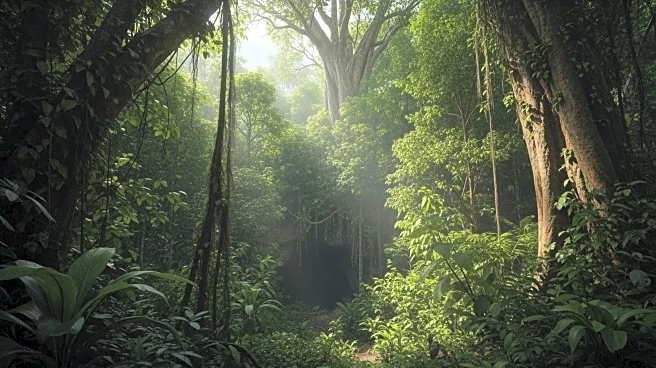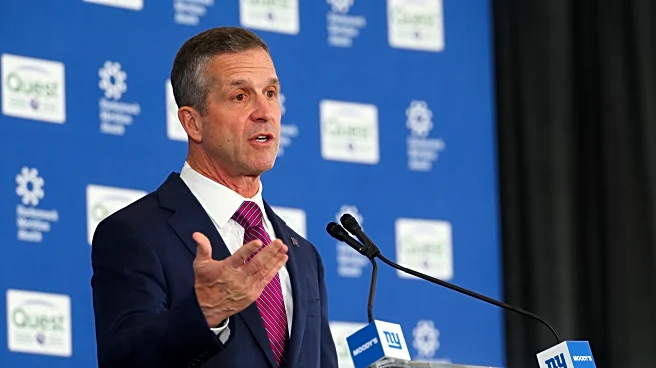What's Happening?
A recent report by Survival International highlights the precarious situation of uncontacted Indigenous groups worldwide, identifying at least 196 such groups primarily in South America. These communities
face significant threats from logging, mining, and organized crime, with nearly 65% threatened by logging alone. The report emphasizes that these groups, often living in voluntary isolation, are at risk of extinction within a decade if protective measures are not implemented. The report also notes that these communities are not 'lost tribes' but contemporary societies that have chosen isolation due to historical violence and disease. The lack of government priority and the encroachment of extractive industries pose severe risks to their survival.
Why It's Important?
The survival of uncontacted Indigenous peoples is crucial not only for their cultural preservation but also for global environmental stability. These communities play a vital role in maintaining biodiversity and combating climate change by preserving forested areas. The report calls for stronger legal protections and a shift in public perception to view these groups as integral to the planet's future. The encroachment of industries on their lands not only threatens their existence but also contributes to environmental degradation. The report urges governments and corporations to recognize and enforce Indigenous territories and to ensure that supply chains do not exploit these lands.
What's Next?
The report advocates for a global no-contact policy, urging legal recognition of uncontacted territories and the suspension of industrial projects in these areas. It calls for public pressure and corporate responsibility to halt the destruction of Indigenous lands. Governments are encouraged to map and protect these territories from a distance to avoid harmful contact. The report highlights the need for international cooperation and enforcement of treaties that affirm Indigenous rights. The future of these communities depends on immediate and sustained action to protect their lands and way of life.
Beyond the Headlines
The ethical implications of contact with uncontacted peoples are profound, as such interactions can lead to the spread of diseases and the disruption of their cultural and social systems. The report underscores the importance of respecting their choice to remain isolated and the need for global awareness of their plight. The survival of these communities is intertwined with broader environmental and human rights issues, emphasizing the interconnectedness of global challenges.











